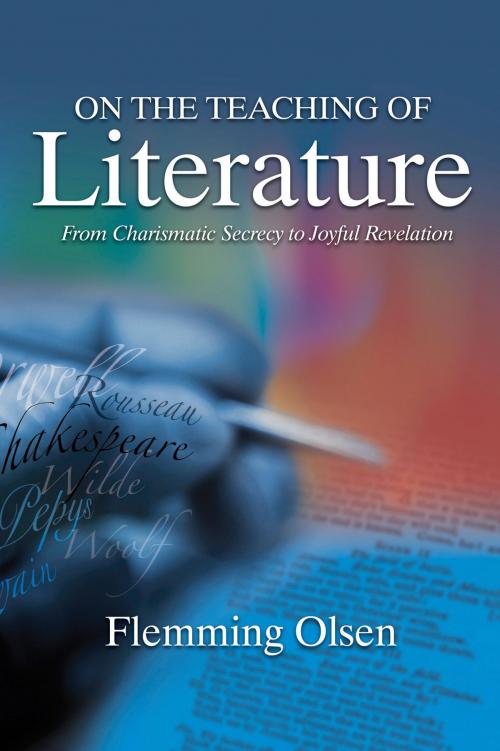On the Teaching of Literature
From Charismatic Secrecy to Joyful Revelation
Nonfiction, Reference & Language, Education & Teaching, Teaching, Teaching Methods, Fiction & Literature, Anthologies| Author: | Flemming Olsen | ISBN: | 9781782843580 |
| Publisher: | Sussex Academic Press | Publication: | August 1, 2016 |
| Imprint: | Sussex Academic Press | Language: | English |
| Author: | Flemming Olsen |
| ISBN: | 9781782843580 |
| Publisher: | Sussex Academic Press |
| Publication: | August 1, 2016 |
| Imprint: | Sussex Academic Press |
| Language: | English |
Drawing on the author’s teaching practice and experience, this book is based on the premise that reading and analyzing literary texts are rewarding pursuits. The target group is grammar school pupils and students at colleges of education and universities. Pedagogic theories are dealt with only in so far as they are applicable to the teaching situation. After establishing the distinction between fiction, which demands ‘a willing suspension of disbelief’, and non-fiction, which is set in the universe of the pupil’s experience, succeeding chapters set out the benefits for the teaching of literature – namely, how it encompasses psychology, history, and aesthetics. It fulfils the Horatian demand ‘profit and delight’.After addressing the pedagogic assets and liabilities of various theories of the concept of text, what lies at the heart of the book is how teachers tackle their role in guiding and inspiring without pontificating. The invitation to the student is to cooperate constructively, but not uncritically. Issues of interpretation and the passing on of interpretative paradigms are alerted to, which leads naturally on to the pedagogic challenge of explaining the potentialities of different genres, and the necessity of a firm grounding in technical terms like composition, style, theme, metaphor, etc. as didactic tools. A concluding chapter suggests criteria that may make value and evaluation rest on strong foundations in acknowledgement of the subjective elements inherent in ‘the literary experience’, namely to avoid making literary analysis a schematic formula and to ensure that it promotes the expansion of the student’s humanistic horizon. This book is essential reading for all those involved in teaching Literature and Language.
Drawing on the author’s teaching practice and experience, this book is based on the premise that reading and analyzing literary texts are rewarding pursuits. The target group is grammar school pupils and students at colleges of education and universities. Pedagogic theories are dealt with only in so far as they are applicable to the teaching situation. After establishing the distinction between fiction, which demands ‘a willing suspension of disbelief’, and non-fiction, which is set in the universe of the pupil’s experience, succeeding chapters set out the benefits for the teaching of literature – namely, how it encompasses psychology, history, and aesthetics. It fulfils the Horatian demand ‘profit and delight’.After addressing the pedagogic assets and liabilities of various theories of the concept of text, what lies at the heart of the book is how teachers tackle their role in guiding and inspiring without pontificating. The invitation to the student is to cooperate constructively, but not uncritically. Issues of interpretation and the passing on of interpretative paradigms are alerted to, which leads naturally on to the pedagogic challenge of explaining the potentialities of different genres, and the necessity of a firm grounding in technical terms like composition, style, theme, metaphor, etc. as didactic tools. A concluding chapter suggests criteria that may make value and evaluation rest on strong foundations in acknowledgement of the subjective elements inherent in ‘the literary experience’, namely to avoid making literary analysis a schematic formula and to ensure that it promotes the expansion of the student’s humanistic horizon. This book is essential reading for all those involved in teaching Literature and Language.















